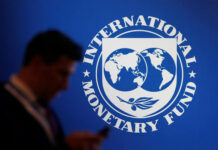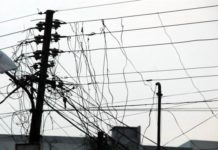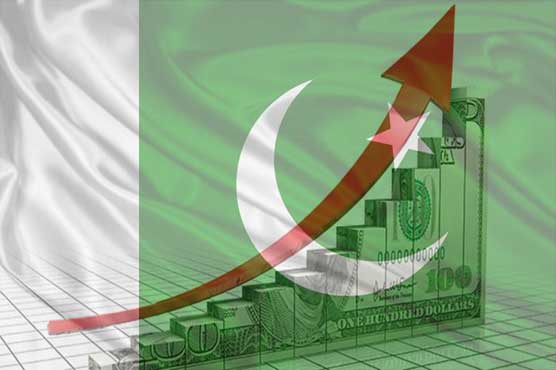ISLAMABAD: The economy is facing a major economic challenge with rapid depletion of foreign reserves and unsustainable fiscal deficit denying the country of its potential. This was stated by the Ministry of Finance (MoF) senior officials in an informal presentation to the Finance minister in waiting.
MoF high ups gave a presentation to the Finance minister in waiting a few days back.
State Bank of Pakistan’s (SBPs) reserves are around $10 billion whereas the fiscal deficit is 6.6 per cent of Gross Domestic Product (GDP). The target of fiscal deficit is 5.5 per cent of the GDP.
In order to bring down the deficit to 5 per cent of GDP, there is a dire need for substantial fiscal tightening which ultimately comes down to the reduction in expenditures, MoF suggested.
The presentation consisted of four parts which included topics such as the past five-year economic performance, two key challenges, immediate policy challenges, responses, and the systematic reform agenda.
Past five year performance
Ministry officials briefed the finance minister in waiting about the last five years economic statistics such as the GDP which reached from 4.8 per cent to 5.8 per cent, per capita income increase from $1542 billion to $1638 billion, fiscal deficit increase from 5.7 to 6.6 per cent of the GDP, gross public debt increase from 66.8 to 72.3 per cent of GDP, Current account deficit (CAD) jumped from $8 to $18 billion and the imports reaching to a massive $59.3 billion.
It was also informed that the China Pakistan Economic Corridor (CPEC) also played a positive role in investment and capital formation. Financial crisis largely remained home grown with consumption led policies – expansionary fiscal policy in 2017-18, stable exchange rate till December 2017 and overall low interest rates. Officials stated that the home grown financial crisis increased the aggregate demand which stimulated imports.
Two key challenges
The country is currently facing two challenges which require distinct policy approaches. The short run challenge arising from rapid depletion of the official international reserves and unsustainable fiscal deficit, similarly, the longer term challenges of creating a sustainable economic and fiscal management system (escaping from the cycle of repetitive IMF support programs).
Immediate challenges
The immediate challenges are the depletion of SBP reserves which are around $10 billion (2 months of import cover), similarly, this depletion will continue despite increasing of interest rates and furthermore, the country is facing challenge in currency depreciation which has depreciated by up to 22 per cent from Rs128 to Rs105 in the last few months.
The economy is also facing challenges in increase trend of the imposition of regulatory duties and limits on cash margin for imports. The ministry warned that if the government will not take immediate steps, then the reserves may fall below to $6 billion by October and November.
In addition to above; the challenges include international rating agencies (Moody’s and Fitch) which have downgraded Pakistan’s rating, FATF has placed Pakistan on ‘grey-list’ and large off-budget liabilities exist which are around 5 per cent of GDP.
Recommended response
Ministry of finance recommended to increase interest rates and adopt tightened monetary financing. In addition to this, it has also been suggested to reduce the deficit to 5 per cent of GDP through substantial fiscal tightening such as reducing the expenditure.
Sources told that MoF in its presentation said that if next government takes measure in above stated things then current account deficit may be reduced to $10billion which is $18 billion.
Ministry also recommended filling the financing gap by accessing to bilateral commercial financing, issuance of bonds and approaching to IMF.
Officials also stated that there is dire need of systematic reforms such as tightening of the fiscal control system, revamping of public sector enterprises, capability enhancement of Finance, planning, FBR and other departments and lastly announcement of a new NFC award.
Besides this, officials also suggested reforms in management. There is need of developing communication strategy such as sustainability first, in addition, create an oversight committee under the supervision of PM who could be briefed on above stated reforms on a quarterly basis and importantly involve the cabinet and parliament on the implementation of the reforms.
Implications
Depreciation and interest rate hikes will lead to higher inflation (around 7.5 per cent on averages). Therefore, pro-poor expenditure initiatives would be allowed, and economic growth below 5 per cent would lead to increased unemployment.
New taxes may require introduction and reduction of government expenditures which are likely to be painful.
MoF also opinioned of systematic reform agenda as budget deficit recorded 6.6 per cent of GDP while FBR collections remain at Rs3842 billion and Q block just released Rs661 billion for the public sector development program (PSDP).
They also hinted that the budget deficit is likely to increase to 7.1 per cent in the ongoing fiscal year. Similarly, interest rates can reach 9.5 per cent which was earlier projected at 6.25 per cent.
Immediate steps will be required to bring down the deficit to 5 per cent which included FBR administration and policy measures – including reversal of low income tax ordinance, reduction of PSDP, an MoU with provinces on surplus through CCI, ban on recruitment/asset purchase, need of new tax measures.
























